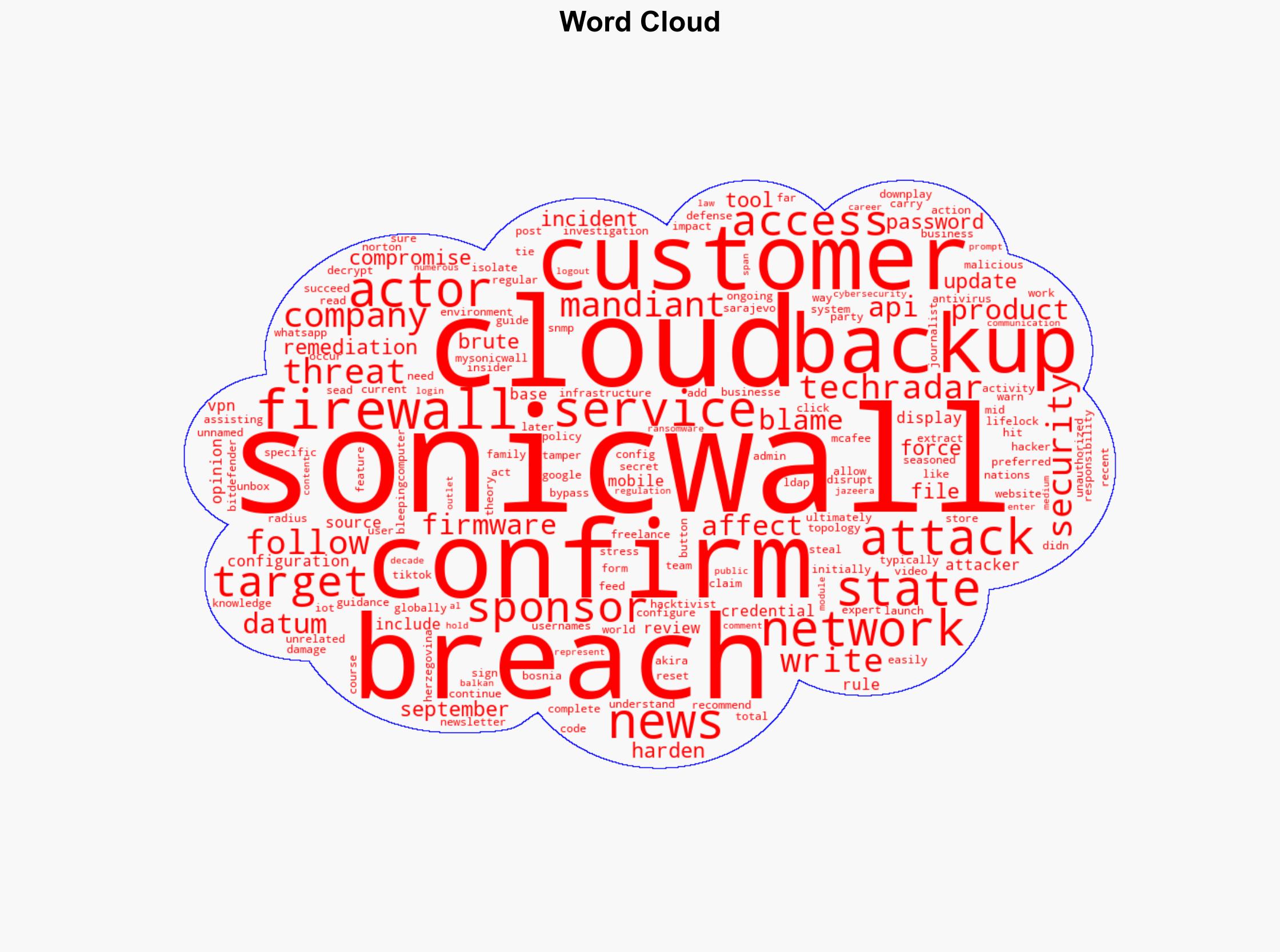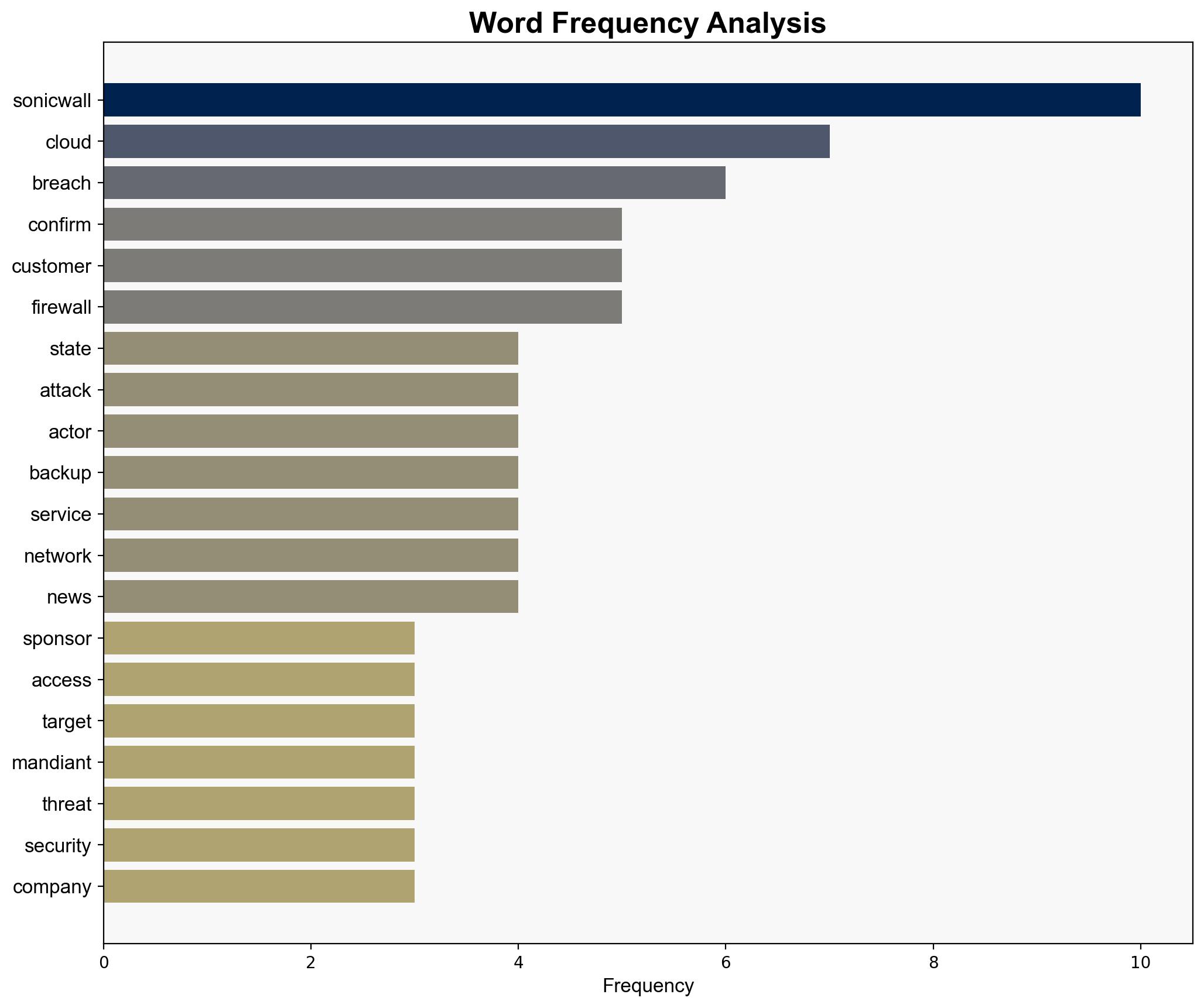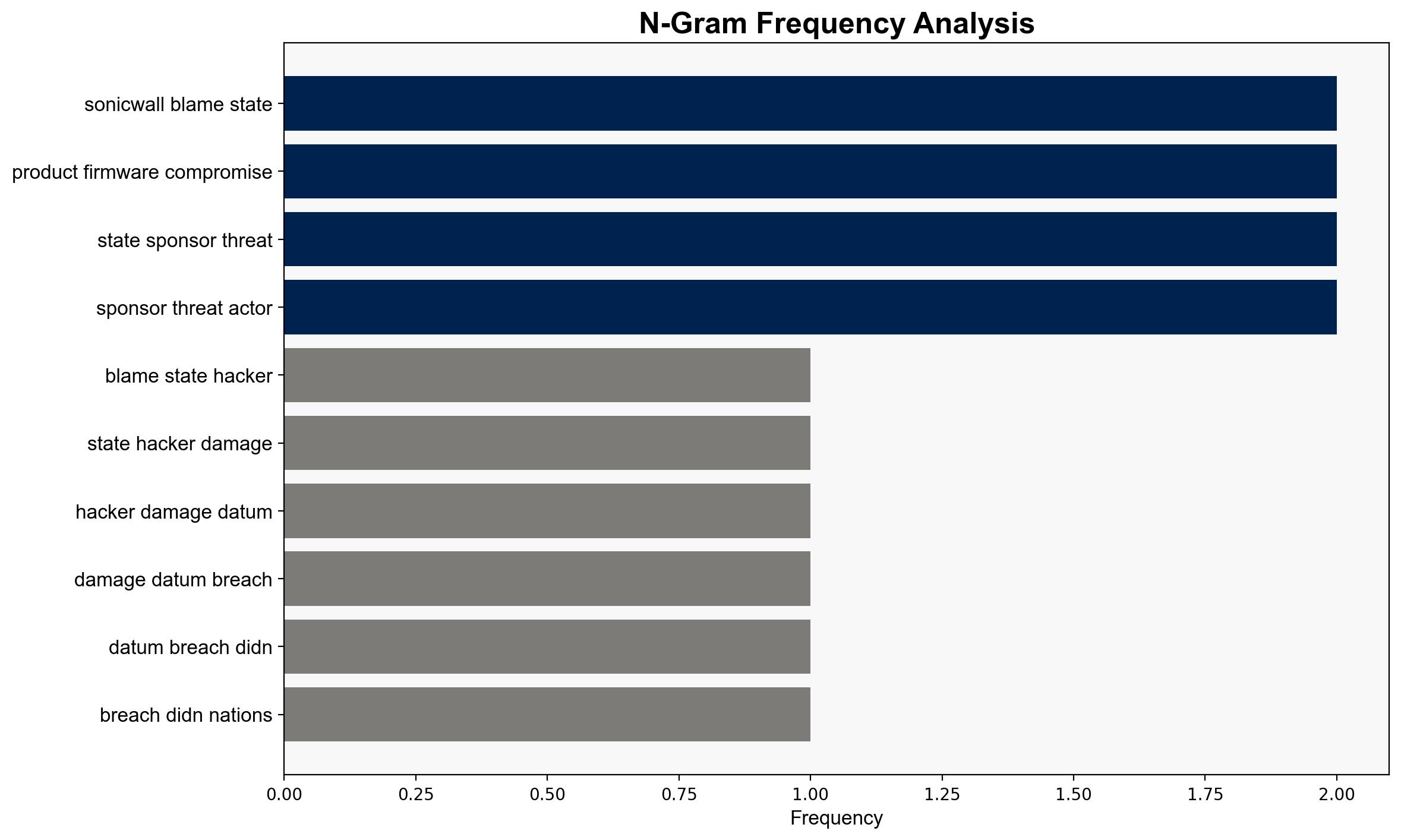SonicWall blames state hackers for damaging data breach – TechRadar
Published on: 2025-11-06
Intelligence Report: SonicWall blames state hackers for damaging data breach – TechRadar
1. BLUF (Bottom Line Up Front)
The most supported hypothesis is that a state-sponsored actor was responsible for the SonicWall data breach, as indicated by the company’s investigation and the involvement of Mandiant in remediation efforts. Confidence in this hypothesis is moderate due to the lack of direct attribution evidence. Recommended actions include enhancing cybersecurity protocols and conducting a thorough review of cloud backup security measures.
2. Competing Hypotheses
Hypothesis 1: The breach was conducted by a state-sponsored actor, as claimed by SonicWall. This is supported by the company’s investigation and the nature of the attack, which involved sophisticated techniques such as brute force decryption and API targeting.
Hypothesis 2: The breach was perpetrated by a non-state actor, potentially a cybercriminal group, using state-like tactics to mislead attribution. This hypothesis considers the possibility of deception and the lack of public evidence directly linking the attack to a state entity.
Using Analysis of Competing Hypotheses (ACH), Hypothesis 1 is better supported due to the specific targeting of cloud backups and the involvement of Mandiant, which suggests a level of sophistication typical of state-sponsored operations.
3. Key Assumptions and Red Flags
– Assumption: SonicWall’s attribution to state-sponsored actors is accurate and not influenced by external pressures.
– Red Flag: Lack of concrete evidence publicly available to substantiate the state-sponsored claim.
– Potential Bias: Confirmation bias may exist if SonicWall is predisposed to attribute the breach to state actors due to previous incidents or industry trends.
– Missing Data: Details on how the attribution to state actors was determined remain undisclosed.
4. Implications and Strategic Risks
The breach highlights vulnerabilities in cloud backup systems, posing risks to global cybersecurity. If state-sponsored, it could indicate a broader strategy of targeting critical infrastructure, potentially escalating geopolitical tensions. The incident may also inspire similar attacks by non-state actors, increasing the overall threat landscape.
5. Recommendations and Outlook
- Enhance cybersecurity measures, focusing on cloud backup security and API protection.
- Conduct a comprehensive review of network configurations and access policies.
- Scenario Projections:
- Best Case: Strengthened defenses prevent future breaches, and attribution leads to diplomatic resolutions.
- Worst Case: Continued breaches lead to significant data loss and geopolitical conflicts.
- Most Likely: Incremental improvements in cybersecurity with ongoing threats from both state and non-state actors.
6. Key Individuals and Entities
– SonicWall
– Mandiant
– Unnamed state-sponsored actors
7. Thematic Tags
national security threats, cybersecurity, counter-terrorism, regional focus





